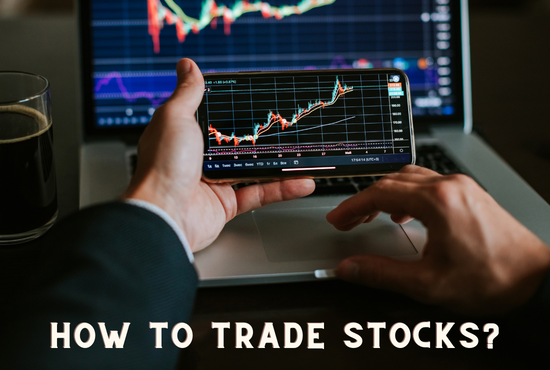Are you a beginner finding it hard to trade stocks? Want to know how to trade stocks like a pro? Trading stocks as a beginner can be a bit tricky, but once you get a hold of markets and methods, it gets easy with time.
Whether you’re a beginner or not, these tips are not something to be missed out on. Read the post until the last bit to learn how to trade stocks like a pro.
How To Trade Stocks In Primary Market And Secondary Market?
To start with, let us give you a look at what primary and secondary markets are in stock trading.
What Is Primary Market And How To Trade Stocks In Primary Market?
- In the primary market, securities are created.
- All the new stocks and bonds are presented to the public in the primary market, aka the first appearance is made here. You may also know it by the title IPO or an initial public offering.
- Whenever a private company issues its stocks to the public for the first time, it is an example of an IPO.
- Say a company, ABC, has 3 underwriting firms hired to calculate its IPO details. If the firms issue the price of the stock as $300, you can now buy the stocks directly from the company for $300.
What Is The Secondary Market And How To Trade Stocks In The Secondary Market?
- The securities created in the primary market are traded in the secondary market.
- The “Stock Market” you’ve heard of is actually the secondary market.
- Here the investors trade among themselves.
- The issuing company has no direct involvement in this market; it’s just the sellers and the buyers, all third parties.
- Let’s say you have bought some stocks of Netflix. If you now decide to sell your stocks to your friend, this happens in the secondary market because Netflix is nowhere involved in this trade.
How To Trade Stocks At Auction Markets?
The auction market is an aggregate of people who want to sell or buy their stocks. The final price is based on the highest bid. The New York Stock Exchange is the best example of an auction market, and auction markets are a good bid because you have no idea how big a buyer you can get in an auction.

Trading Stocks In An OTC Market
Over-the-counter markets are a relatively unorganized trading network. Now, how to trade stocks in this type of market? Here, trading is between dealer networks. OTC markets have brought liquidity to companies, but the stocks sold here are primarily of low-scale businesses or companies (penny stocks). This type of market is also known as the third market.
Trading Stocks In Fourth Market
The fourth market involves significant volumes of shares that must be transacted per trade, so it does not involve individual investors. Fourth market trading is the one that involves large institutions. If you wish to avoid placing orders through the main exchanges, the fourth market should be your go-to option. But keep in your intellect that access to the fourth market is very limited.
How To Trade Stocks?
Now that you know various markets, let’s discuss how you can actually trade stocks.
- First, you need to open a brokerage account. (You can join eToro, Which is the broker we recommend using one of the following links – For US citizens, click here , For the rest of the world, Click here.)
- Second, set a budget, which will be your stock trading budget, And ideally a contribution to your stock portfolio on a regular basis, Something like monthly, Or weekly.
- Learn how to use market orders as well as limit orders. (You can do that by taking our online investing course ).
- Make a trading account and start practicing!
- Lastly, don’t forget to keep track of your returns.
Things You Should Stick With When Trading Stocks
These tips have helped the masses so hear them out.
1. Trade Through/With Verified Sources Only
If you’re an investor, trade only through verified or registered brokers. The same should be the case when trading with brokerage houses or agents. This can save you from fraudulent gangs and is in the best interest of protecting your assets.

2. Report Illegal Brokers
You are responsible for reporting any unregistered or illegal brokers or agents you encounter. This is to make sure you or any other person doesn’t fall prey to the scams of these gangs.
3. List Of Registered Brokers
All the respective websites of Stock Exchanges have a list of the registered agents/brokers/brokerage houses. Make sure you check that list out before signing up with any broker; it saves you a lot of trouble in the end. However, do keep in mind that the registration is valid only for a period of time, say 1 year, after which it has to be renewed again.
Final Thoughts
After reading this blog post, we hope most of your ifs and buts about how to trade stocks would have reached their final destination. Remember that stocks are not really easy money; you have to work hard and give your time and energy to make it profitable. But in the end, it will all be worth it.


0 Comments